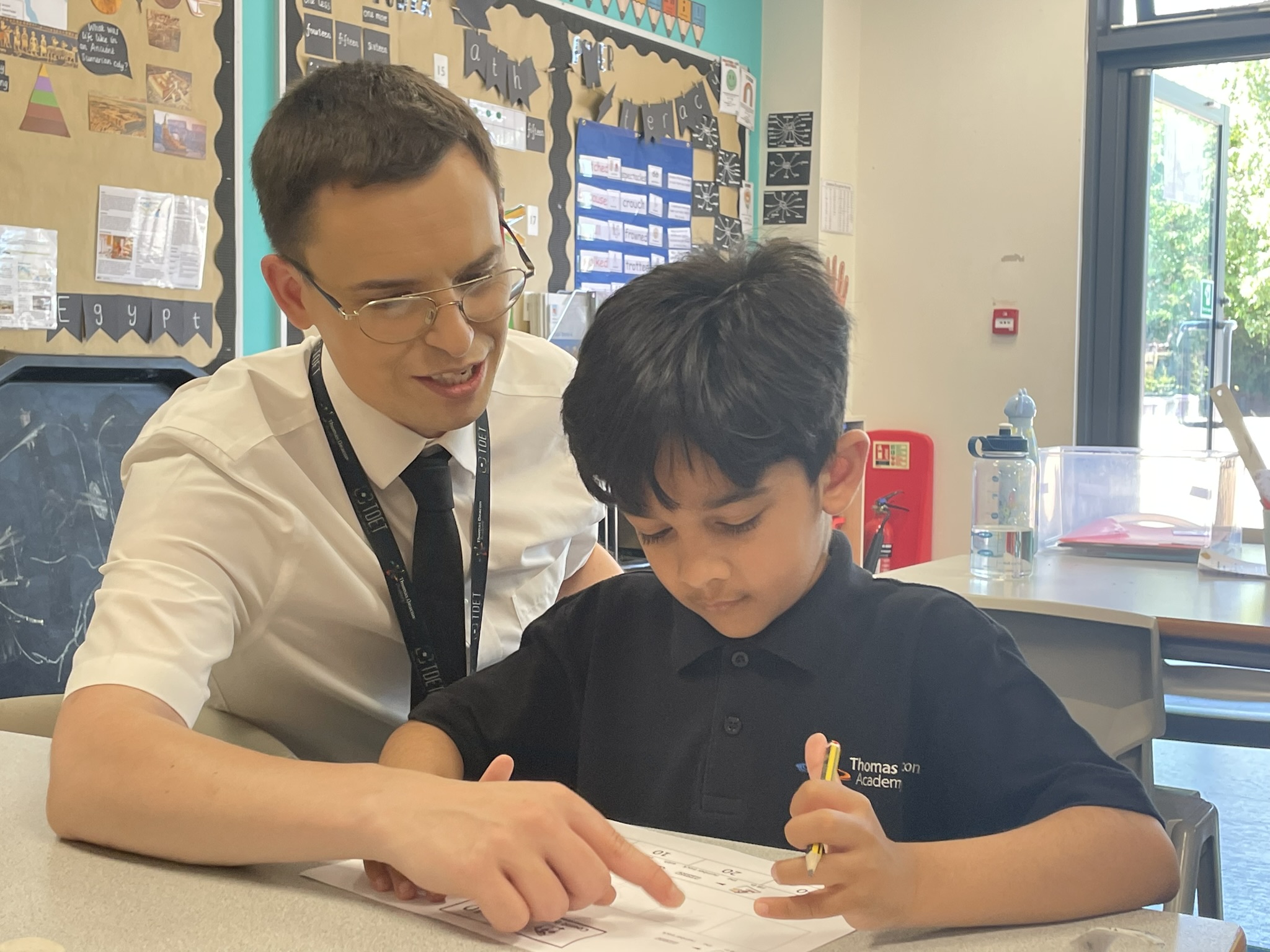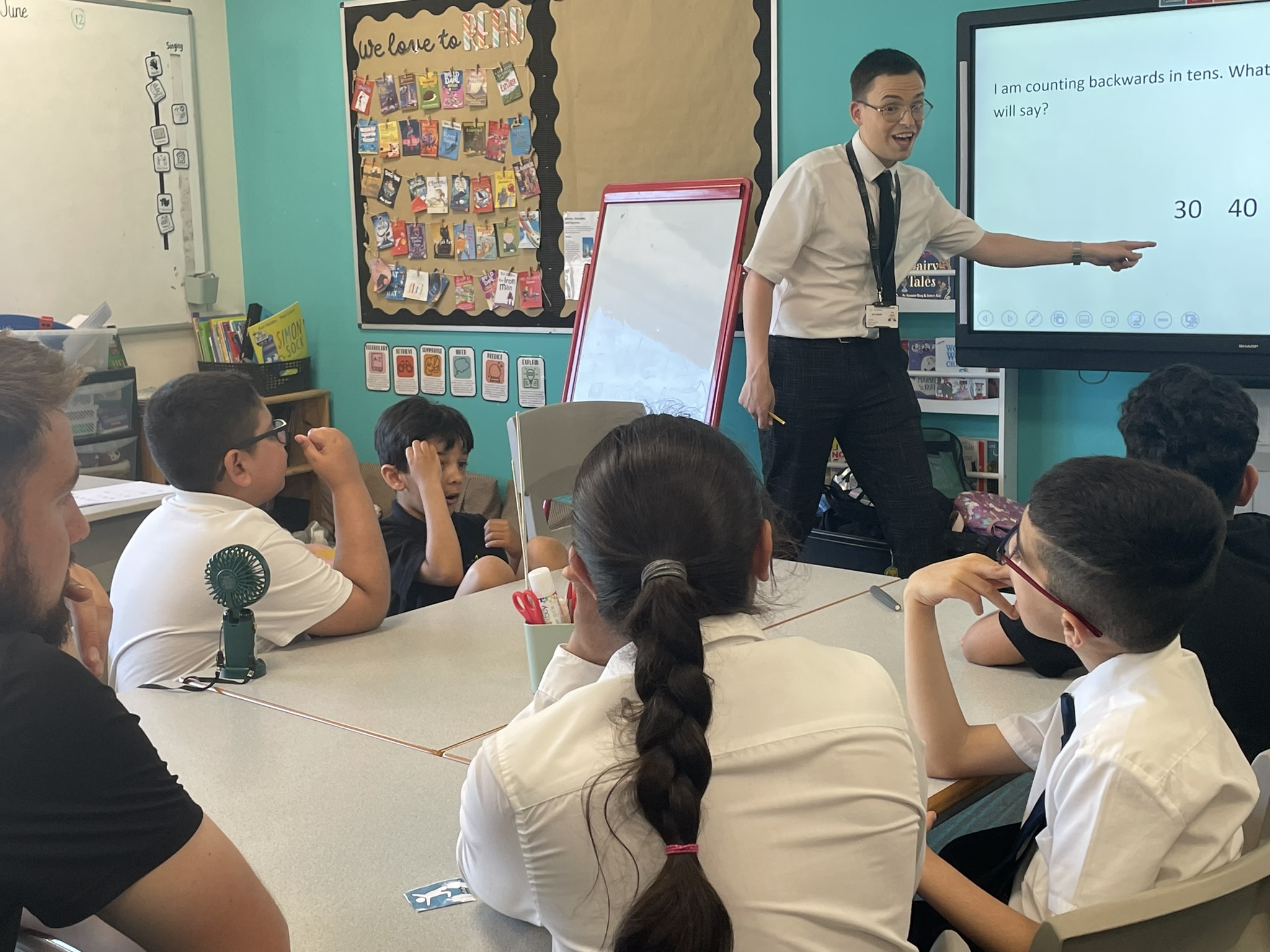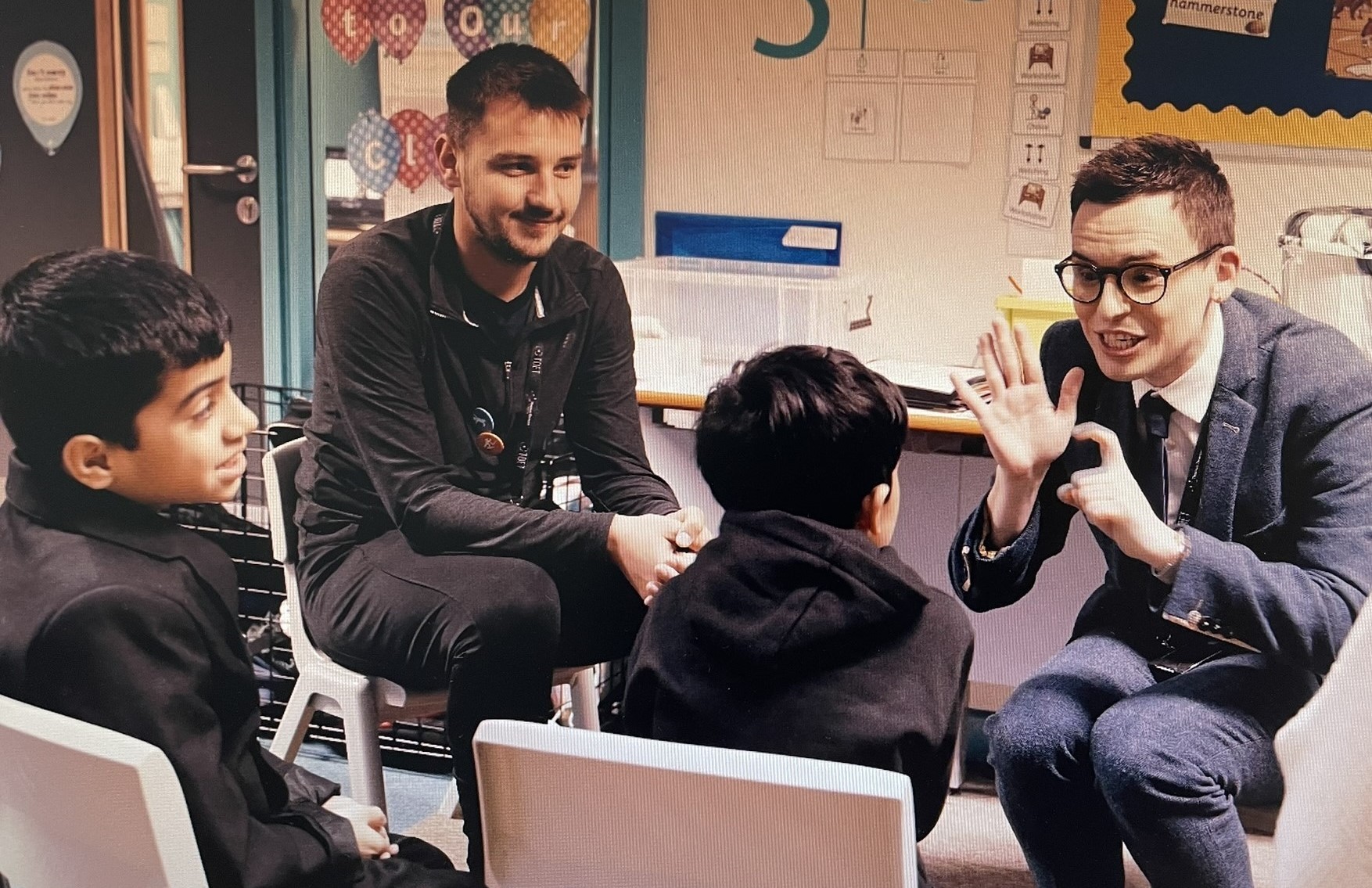Meet Ian Gilbert
HLTA for SEND Provision - Thomas Deacon Academy
We recently caught up with Ian Gilbert, who has been a valued member of Thomas Deacon Academy Juniors for the past three years in his role as Higher Level Teaching Assistant (HLTA) for SEND provision. Ian is known for his dedication and expertise in supporting pupils with Special Educational Needs and Disabilities, making a real difference to the lives of children and families across the TDA Juniors community.
In this interview, Ian shares insights into his varied career journey, his passion for helping pupils overcome barriers to learning, and how his work fits within the wider Thomas Deacon Education Trust. He also reflects on what motivates him, the benefits of working within a skilled and supportive team, and what he enjoys outside of school.
Q: Ian, can you tell us about your career history?
I’ve had a varied career across different sectors. I began in customer service, working in a call centre, and spent a brief period as cabin crew. After returning to Peterborough, I went back into call centre work, but I knew this wasn’t my long-term goal-education had always been something I wanted to pursue.
I asked to volunteer at a local primary school to gain experience with the aim of applying for a Primary Education degree at Bishop Grosseteste University in Lincoln. I used a booked holiday from my job to complete the volunteering. After just two days supporting a child with Special Educational Needs, I was encouraged to apply for a 1:1 position working with that child. This experience, and understanding the barriers he faced, inspired me to work with pupils with special educational needs.
I went on to complete my degree with First Class Honours in Primary Education and started work immediately as a teacher in special needs education. After that, I applied for my current role at TDA Juniors. The role felt bespoke and unique, giving me the opportunity to focus on supporting Special Educational Needs and to develop a deeper understanding of the statutory processes involved.
Q: How long have you been at the Trust and what does your current role as SEND HLTA involve?
I’m now in my second academic year at TDA Juniors. My role as SEND HLTA is varied and interesting. First and foremost, I ensure that pupils with Special Educational Needs can access their learning as fully as possible. To do this, I work closely with teachers who have pupils on the TDA Juniors Special Educational Needs and Disabilities register, discussing adaptations to planning or the environment to give pupils the best possible access. I’m also responsible for ensuring there’s a wide range of interventions available in school to support targeted needs.
I support teachers in following the graduated approach, which includes early identification of pupils with SEND, adapting teaching for those suspected of having SEND, reviewing the effectiveness of these approaches, and considering whether referrals are needed. Once a referral is made, I carry out observations, undertake standardised assessments where possible, and discuss next steps with my line manager. If a child is identified as having SEND, I help teachers draw up a Pupil Learning Plan and complete the assess, plan, do, and review cycle. This helps determine if further referrals to external agencies, such as speech and language therapy, or applications for an Education, Health and Care Plan (EHCP) are needed. It’s essential that parents are kept informed and involved throughout this process.
Q: What are your favourite aspects of your role?
My favourite part of the job is building rapport with the pupils I work with. It’s incredibly rewarding to find out what motivates each pupil and to use that to help them thrive in their education. Working with pupils with SEND requires time and dedication; it can often take longer for these pupils to build trust and open up, and their needs can be more complex. Working closely as a team-especially with the TAs who support these pupils directly-and sharing ideas and experiences leads to better outcomes.
Q: What are the benefits of working for TDET?
There are many benefits to working for TDET. For me, the biggest is being part of a trust filled with skilled professionals who share my passion for supporting pupils with SEND. We all have areas of expertise that we share and knowing there are experts in fields where I may feel less confident is very reassuring.
Q: What do you enjoy doing outside work?
Outside of work, I have a variety of hobbies. I love to cook and bake, and I have a keen interest in Japanese and Chinese culture. I’ve also been learning to sew over the past couple of years, though I still consider myself a novice.
Thank you, Ian!




